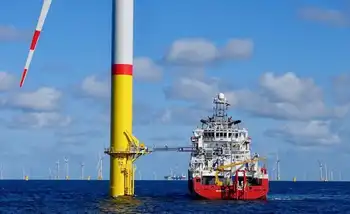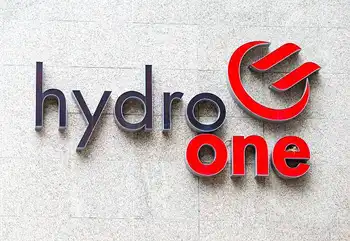Russia to build nuke plant in Venezuela
CARACAS, VENEZUELA - Venezuelan President Hugo Chavez reached a deal with Russia to build the South American country's first nuclear plant, as questions arose why a nation rich in oil and gas would feel the need to venture into atomic energy.
The two nations also signed other energy agreements. Russia has cultivated close ties with Chavez's government to expand its global clout and counter U.S. influence in Latin America.
The ITAR-Tass news agency said Russia plans to build two 1,200 megawatt nuclear reactors at the Venezuelan plant. The cost of the nuclear deal wasn't immediately announced.
The deal is likely to raise concern in President Barack Obama's administration but continues a pattern of Russia pressing to export its nuclear expertise.
Russia has just completed Iran's first nuclear power plant and recently reached new deals to build nuclear reactors in China and Turkey. It's talking with Indian officials about building a dozen of nuclear reactors there and also wants to build a nuclear reactor in the Czech Republic.
Russian President Dmitry Medvedev sought to pre-empt questions about why Venezuela would need nuclear power by saying the deal would help Caracas reduce its dependence on global market fluctuations.
"I don't know who will shudder at this," Medvedev said at a news conference after the signing. "The president of Venezuela said there will be nations that will have different emotions about that, but I would like to emphasize that our intentions are absolutely pure and open: We want our partner Venezuela to have a full range of energy possibilities."
Venezuela relies on hydroelectric power for most of its electricity, and a severe drought last year and in early 2010 pushed the water level at country's largest hydroelectric dam to perilous lows. The lower levels, combined with a lack of adequate upgrades to the power grid, prompted rationing measures for a time, including rolling blackouts. Chavez says nuclear power is part of his government's plans for diversifying its energy sources.
Medvedev said Russia sees nuclear energy as a priority, despite its own hydrocarbon wealth, and described Russia's civilian nuclear technology as highly competitive abroad.
"We are building many plants in different countries, so why wouldn't build such a plant in our close partner, Venezuela?" he asked. "That will offer a certain degree of independence in case of a drop in world energy prices."
Chavez said Venezuela wants to reduce its dependence on oil and gas.
"Strategic cooperation with Russia gives my country a huge advantage," he said.
The Venezuelan leader has grown close to Russia, Iran and China while assailing U.S. policies, and his rhetoric about the need for a "multi-polar world" has resonated in Moscow.
"Russia and Venezuela staunchly support the creation of modern and fair world order, so that our future doesn't depend on the will and the liking of just one country, its welfare and mood," Medvedev said in a veiled reference to the United States.
Chavez defends Iran's nuclear program, saying he is sure the country isn't building nuclear weapons. Chavez says countries like his and Iran have a right to develop atomic energy to expand their energy options.
"This is something that we will watch very closely," U.S. State Department spokesman P.J. Crowley said. "The last thing we need to do is see technology migrate to countries or groups that should not have that technology."
Chavez' nuclear ambitions appear to be one more way for him to thumb his nose at the U.S. It's unclear how much money he is prepared to commit to the atomic program, or how quickly he could move to build a reactor.
Chavez met with Prime Minister Vladimir Putin later Friday. Putin said a delivery of 35 sophisticated tanks would soon be made, Russian agencies reported. There was no elaboration. State news agency RIA Novosti reported that Venezuela has since 2005 spent $4 billion on Russian arms, including helicopters, warplanes and Kalashnikov assault rifles.
True to his flamboyant style, meanwhile, Chavez praised the Soviet Union and presented Medvedev with several bars of dark chocolate and cans of banana confiture and cocoa powder as the two leaders sat facing reporter's questions.
In another deal signed after the talks, Russia's state oil company Rosneft agreed to buy from Petroleos de Venezuela S.A. 50 percent in Germany's Ruhr Oel GmbH, a 50-50 downstream joint venture between PdVSA and British oil giant BP. The Russian oil company will pay $1.6 billion for the stake, the company said in a statement.
Ruhr Oel holds stakes in four German refineries and petrochemical plants.
Rosneft president Eduard Khudainatov said the deal will help Rosneft "expand our presence with high quality assets in key international markets". The deal will leave 18 percent of Rosneft's refining capacity "in the heart of industrialized Europe."
Russian companies are involved in exploring Venezuela's shelf for oil and gas, but Putin's deputy in charge of energy, Igor Sechin, said their efforts have been unsuccessful so far.
Russian state-controlled gas monopoly Gazprom spent $300 million drilling the first borehole, but found no gas there, Sechin said, according to news reports. Gazprom is exploring Urumaco 1 and Urumaco 2 blocks in the Gulf of Venezuela, but Sechin did not specify which of them proved to contain no gas.
Sechin also said that Venezuela agreed that Gazprom should be given another sector to try its luck there.
Chavez's government has bought more than $4 billion in Russian weapons since 2005, including fighter jets, helicopters and 100,000 Kalashnikov rifles. New weapons deals have been under discussion, but no new agreements were announced.
Russia and Venezuela also have launched a joint business to tap vast oil deposits in eastern Venezuela.
Related News

Cheap oil contagion is clear and present danger to Canada
CALGARY - A war between Russia and Saudi Arabia for market share for oil may have been triggered by the COVID-19 pandemic in China, but the cheap oil contagion that it will spread could have impacts that last longer than the virus.
The prospects for Canada are not good.
Plunging oil prices, reduced economic activity from virus containment, and the fallout from weeks of railway blockades over the Coastal GasLink pipeline all add up to “a one-two-three punch that I think is almost inevitably going to put Canada in a position where its growth has to be negative,” said Dan McTeague, a…




